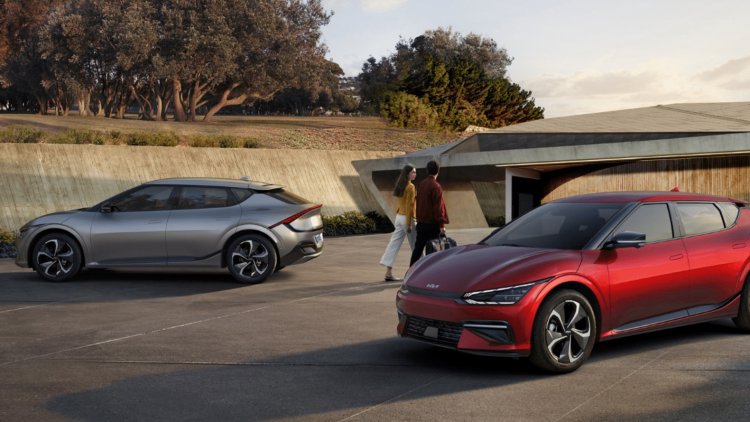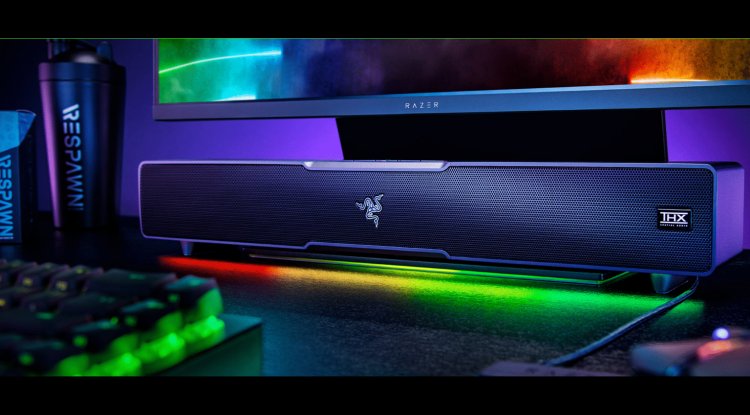Kia EV6, a very ambitious electric car

| Analyzed model | Kia EV6 |
| Engine and Finish | GT-line 229 hp 77 kWh Rear-wheel drive |
| Power | 229 hp |
| Maximum speed | 185km/h |
| Acceleration o-100 | 7.3s |
| Long wide high | 4695/1890/1550mm |
| Max Power RPM | 229 hp |
| Max torque Nm/RPM | 350Nm |
| Gearbox | Automatic |
We had the chance to test the Kia EV6, a very ambitious electric car in terms of concept and design that we can place in the category of those electric cars designed to look different because their appearance is far from the conventional design parameters of cars, thanks also to the fact that this type of vehicle has a different configuration by proposing completely different mechanical solutions.
With a 4.68-meter vehicle with futuristic airs and innovative solutions that seeks to compete in a race in which athletes have only taken their first strides, the Korean manufacturer has completely distanced itself from its previous proposals to land strongly in the segment of medium to large electric cars. It also means the launch of an electric car platform shared with Hyundai's Ioniq 5, which will almost certainly lead to new versions of both brands.
The design of the Kia EV6 is sleek and futuristic, as expected. Very sharp headlights taper towards the center and are joined by a slender, dark-colored grille at the front. The hood is extended and sports-inspired, with two bulges extending from the headlights to the windscreen. A big spoiler is divided beneath another grill in order to cool the batteries.
The EV6's shape is more akin to that of a coupé than a regular passenger vehicle, with a streamlined form that is highlighted by the depression at the bottom of the doors, which is highlighted by the bumpers that appear at the top of the door, underside, and above the wheel arches. The rims are also unusually designed, having boomerang-like components that seek energy efficiency with reduced air resistance.
Another futuristic feature borrowed from other electric vehicles such as Teslas is the door opening handles buried in the bodywork. Actually, although it appears to be an aesthetic choice, they do contribute, albeit not much, to reducing air resistance when the car is running in order to enhance the vehicle's autonomy, particularly at high speeds.
The EV6's aggressive style is further emphasized at the rear by a big spoiler divided in two on the roof and a very obvious slope of the tailgate to another second spoiler capped with red reflective material that connects the light groups while at a lower height.
They are also connected by a silver-colored plastic part that frames the Kia emblem as well as the model identifier. The bumper and rear spoiler round out this unique appearance.
The large slant of the tailgate glass provides a lot of dynamism but lowers visibility, which is compensated for by the very complete list of driving assistance systems, which includes a wide series of cameras to facilitate movements.
The overall sense is that we are dealing with a huge coupé with many aerodynamic concessions, but not as many as other models with possibly more severe aerodynamic designs.
Clean, uncomplicated, and ultimately modern lines, as well as finishes in current materials, have been chosen for the interior design of the Kia EV6. Space is the protagonist in electric automobiles developed from the ground up, thanks to mechanical qualities that do away with big engine blocks and a cumbersome transmission.
The dashboard has a simple and linear design, with two adjoining screens that cover the functions of the instrumentation, one behind the steering wheel, and the information and entertainment system on the one hand.
By covering a substantial portion of the upper portion of the aforementioned dashboard, the set conveys an important message of modernity and creativity.
The information and entertainment system screen is touchscreen and has excellent vision, albeit it occasionally has too many reflections. The information is displayed on a dark background, which makes fingerprints on the screen more visible.
The image quality is good, but the graphics, particularly the icon design, may need to be updated to keep up with the rest of the car's design.
The information provided, particularly in the section on the battery, charge, and finally all information on the operation of the electric propulsion system, is extremely comprehensive.
We can also divide the information provided on the screen into a larger and a smaller area to view data from two parts at the same time, such as the load and the browser.
The trunk is one of the Kia EV6's strong characteristics. First and foremost, we have two trunks, one in the front (where we would typically locate the engine) of 50 liters in the case of the rear-wheel-drive version, and one in the four-wheel-drive version of 20 liters.
The rear trunk has a huge volume and reaches 490 liters with a very wide loading aperture due to the large size of the tailgate. However, because of the car's aerodynamic design, the height is not very high, making it difficult to transport things of a particular height. Long objects can be accommodated by opening a hole that corresponds to the rear armrest or folding down the seats. We can collect up to 1,300 liters in total.
It's time to get started testing the Kia EV6's performance. On paper, the stats are extremely strong, with 229 horsepower and a torque figure of 350 Nm, giving it an acceleration capacity at the height of its rivals in the segment of electric cars with similar power, capable of reaching 100 kilometers per hour from a standstill in 7.3 seconds.
On the highway, ride comfort is also very good, and we appreciated the Meridian brand's soundproofing and sound system, though some models, such as the Tesla or the Ford Mustang Mach-e, may be slightly superior. The suspension is a little firm, but it's not too obvious on uneven terrain. And, as we will see, the severity of the suspensions has a purpose.
On curvy roads, the EV6 seems to reveal its personality, and the slightly stronger suspension keeps the car on track even at high speeds. It may be categorized as one of the electric vehicles with a more sporting personality, albeit it lacks some of the punch that we would expect from the four-wheel-drive version with 325 horsepower or the GT version with 585 horsepower.
The truth is that the Kia EV6 handles beautifully and takes full advantage of the basic pure electric characteristics with a low center of gravity. The steering is precise at high speeds, and the braking system works wonderfully, efficiently stopping a vehicle of this size.
The EV6 features multiple programmable levels for retaining the electric motor itself, which allows it to renew electricity while slowing down the vehicle. It also includes an i-pedal mode, which permits driving just by pressing and releasing the accelerator pedal, albeit we will utilize the brake in practice.
The EV6's consumption is not among the finest we've seen because it's tough to keep it at 20 kW hour in the city, which is typical for these vehicles. The battery capacity of 77 kW would result in a range of somewhat less than 400 kilometers, although the advertised range is 504 kilometers. The direct current charging capacity is 240 kW.




























